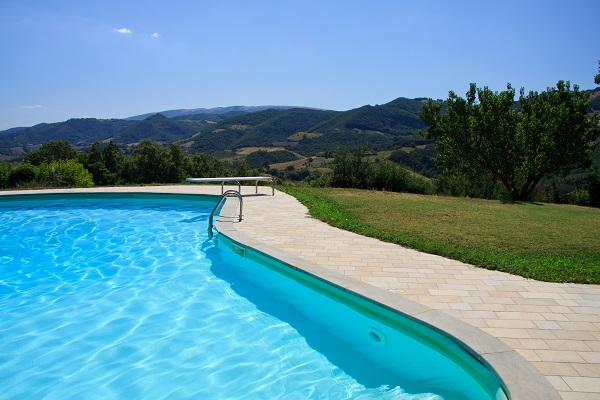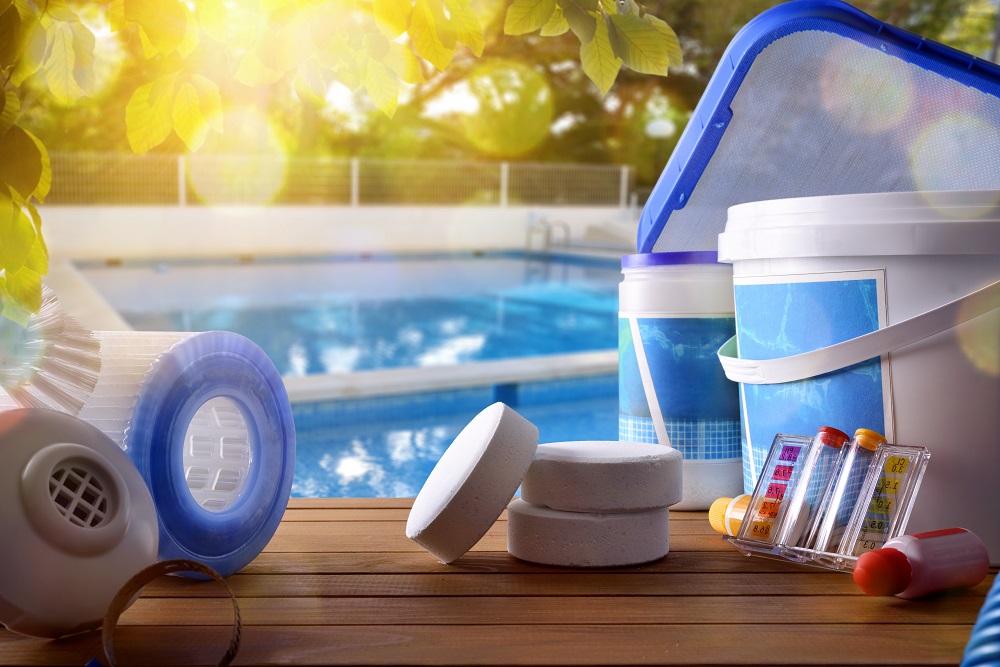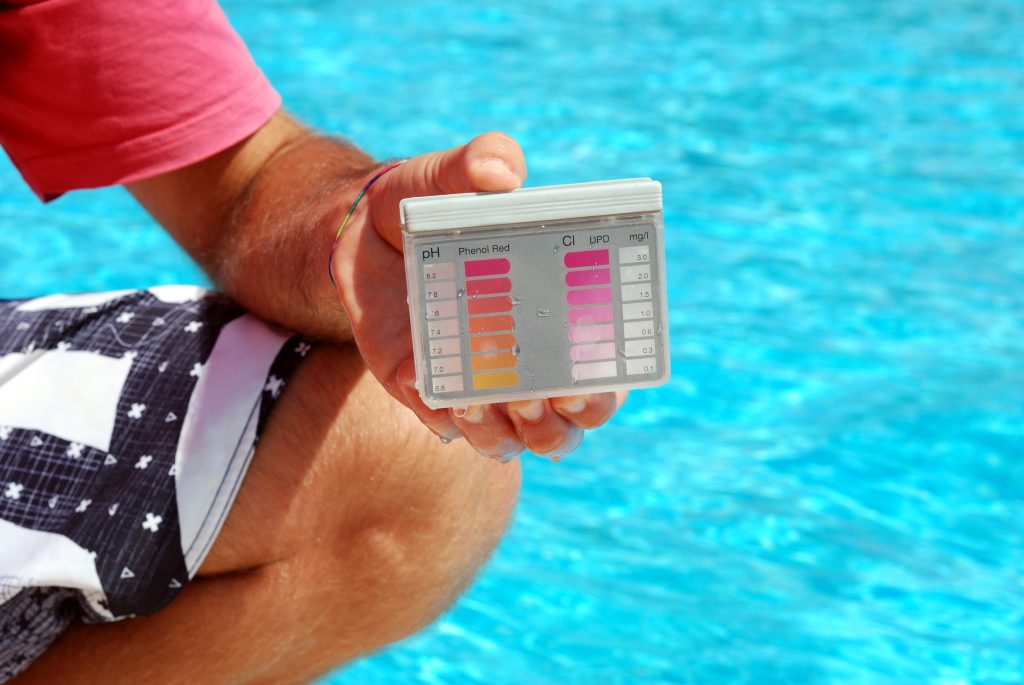Owning your own swimming pool is so exciting, right? But wait. What happens when you need to clean it, maintain it, vacuum it, add chemicals to it and take on the other chores associated with owning a swimming pool? Gulp!
The reason so many pool owners work with a pool contractor is because it is not only a delicate balancing act to care for the pool, its water and keeping the chemicals in line, but it can take quite a while. Would you rather swim in your pool or clean your pool in your free time? We bet the answer is “swim” especially if your free time is limited.
If you are a novice swimming pool owner chances are you still understand how important it is to have the water chemicals properly maintained and balanced, but unless you take a pool maintenance course, how will you know whether you’re doing it correctly?
You may be able to talk with a pool service contractor and for a fee he will come to your home and give you a training session on pool water testing and pool maintenance. If, after you talk with him you decide it’s just too confusing or if you can’t think of where you will store all of those pool chemicals and now knowing that you have to buy them all, up front, you can see why many of your friends and neighbors leave the pool cleaning to a pro.
Here is your basic guide to pool chemicals
Pool shock
When added to the pool water it oxidizes organic contaminants in the water. These contaminants include bacteria and the pool shock kills them. Your pool contractor can let you know under what circumstances you will want to, or need to, shock your pool water. Another name for pool shock is super-chlorination.
Liquid chlorine, granular chlorine or chlorine tablets
There are many types and brands of chlorine on the market, ask a pool contractor for advice on which is best for your pool type. Chlorine is a cleaning product that has been used to keep pool water clean, clear and free of bacteria for decades. Unless you have a natural pool or a salt water chlorinated pool, you will need to use some form of chlorine on a regular basis to keep the water clean.
Bromine
This is a sanitizing chemical used to keep the water clean without harsh side effects like eye irritation or dry, itchy skin. Bromine is sold in tablets and have advantages of chlorine – ask a pool contractor to explain the advantages and disadvantages to each type of sanitizer.
Balancing chemicals
When you test your pool water with a test kit you may find that not all of the chemicals test in correct levels and if this is the case you will have to add “balancing chemicals” such as a pH Increaser or pH Reducer to keep pH and alkalinity levels where they belong.
Keep in mind that bromine cannot be stabilized the way chlorine can you can extend the life of your chlorine by adding a balancing chemical – or stabilizer.
Algaecides
Ugh. The last thing you want to see when you head out to the swimming pool is green or brown or even black water. Algae bloom is sometimes the bane of the do-it-yourselfer in the pool cleaning realm. Using an algaecide will help prevent algae bloom. An algaecide will kill algae and prevent its growth. A pool that is not cleaned regularly can quickly become home to algae bloom and in many instances, it will require the services of a pool contractor to rid the pool of algae and super chlorinate it enough to kill all spores. It is a daunting task.
Stain removal
If your pool chemicals get out of balance you will notice staining of the tiles or interior of the pool. To prevent stains caused by excess calcium, copper, lead or other minerals you will want to add stain prevention chemicals.
A water test kit
This kit will be your best friend when it comes to knowing what chemicals you need to add and when. When you first become a pool owner you may want to test your water daily, write down the readings in a notebook and use that to track the chemical levels. Make note of the time you tested, the activity in the pool before you tested, the weather and anything else to help you keep track of the reasons for differences in chemical readings.
These notes will also be useful if you have to talk with a pool service contractor about chemical levels in the pool.
Using swimming pool chemicals is a part of life of the swimming pool owner. Keep in mind, that is not the only aspect of pool ownership. You will also need to skim off debris, brush the pool walls and floor and behind the pool steps. You will need to vacuum the pool, clean the skimmer basket, and at times backwash the swimming pool filter.
Even with all of the “work” involved in a swimming pool, the fun far outweighs the time spent keeping the water clean and sparkling clear.



